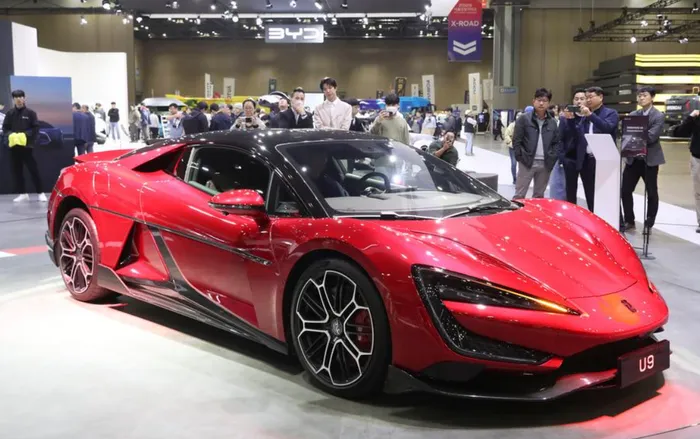South Korea’s Vehicle Market Rises 5% in August

Visitors watch a sport car in Chinese electric vehicle manufacturer BYD's booth during the Seoul Mobility Show 2025 in Goyang City, Gyeonggi Province of South Korea.
Image: Xinhua
Sales by South Korea’s five largest carmakers grew 5% in August 2025 to 111,523 units from 106,149 a year earlier. The totals exclude low-volume commercial vehicle makers such as Tata-Daewoo and Edison Motors, with imported brands to be reported later this month.
Market Drivers and Economic Context
The uplift reflects the impact of recently launched models – especially from Hyundai and Kia – although demand overall remains muted due to high household debt and weak consumer sentiment. GDP expanded by 0.6% in the second quarter after shrinking by 0.2% in the first, aided by a fourth rate cut in a year that reduced the benchmark to 2.50%.
Year-to-Date Performance
Over the first eight months of 2025, the five main domestic manufacturers lifted local sales by 2.5% to 910,878 units. Hyundai gained 2.1% to 469,457 units and Kia edged up to 368,102. GM Korea fell 39% to 10,554, KG Mobility dropped 17% to 26,832, while Renault Korea surged 156% to 35,933 thanks to new hybrid and EV launches.
Combined global sales by the “big five” rose under 1% to 5,278,279 vehicles in the first eight months of 2025, with exports also slightly higher at 4,367,401.
Hyundai: Steady Global Growth
Hyundai’s worldwide deliveries in August rose 0.4% to 336,395 vehicles. Domestic sales increased 0.4% to 58,330 in August and 2.1% year-to-date to 469,457. The company’s US EV plant in Georgia produces the Ioniq 5 and Ioniq 9, with a Kia model due in 2026. Capacity will rise from 300,000 to 500,000 units annually later this decade. Hyundai plans 4,174,000 global sales in 2025 and is boosting its US investment by 24% to US$26 billion to increase local content.
Kia: New Models Drive Gains
Kia delivered 253,950 vehicles globally in August, up slightly from 251,920, supported by new BEVs and hybrids. Domestic deliveries jumped 7.4% to 43,501 in August, led by the Sorento, Carnival and Sportage. Year-to-date domestic volumes rose to 364,941, while overseas sales slipped slightly to 209,887 but were up almost 2% year-to-date to 1,736,191. Production of the EV4 hatchback has begun in Slovakia – Kia’s first European BEV.
GM Korea’s global sales rose 35% in August to 21,059 vehicles, but year-to-date totals slipped 2% to 302,658. Domestic sales plunged 25% last month to 1,207 and 39% year-to-date to 10,554. Exports surged 42% in August to 19,852 but were only slightly higher year-to-date at 292,104.
KG Mobility: Expanding Zero-Emission Line-Up
KG Mobility increased worldwide sales 9% to 8,860 in August but totalled 71,752 in the first eight months, down from 73,006. Domestic sales rose 3% in August but fell 17% year-to-date. Exports climbed 15% in August and 9% year-to-date to 44,920. The firm is expanding its EV line-up and has entered a platform-sharing deal with China’s Chery.
Renault Korea’s global sales fell 24% in August to 6,437 due to weaker exports, though year-to-date volumes rose 8% to 60,735. Domestic sales trebled to 3,868 in August, lifting the eight-month total to 35,933, driven by new Geely-based models. Exports tumbled 63% last month and 41% year-to-date. A Polestar 4-based EV is due to enter production later this year at the Busan plant.
Written By:
*Cole Jackson
Lead Associate at BRICS+ Consulting Group
Chinese & South American Specialist
** MORE ARTICLES ON OUR WEBSITE https://bricscg.com/
** Follow https://x.com/brics_daily on X/Twitter for daily BRICS+ updates
Related Topics: